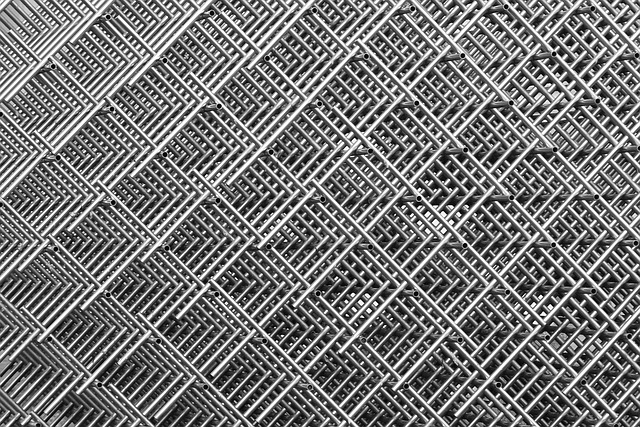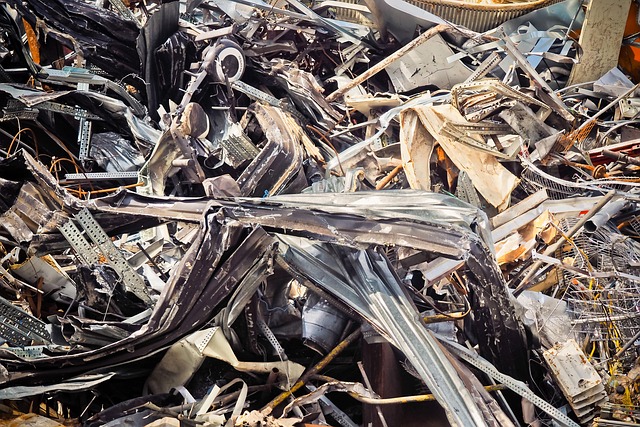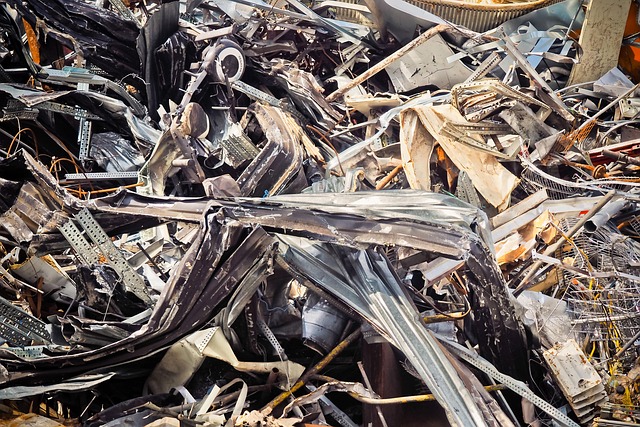Commercial metal fabrication is a critical process that transforms raw metal into precise components for diverse industries like automotive, aerospace, construction, and healthcare. It demands deep expertise in materials science and engineering, utilizing techniques such as cutting, bending, machining, and joining to meet exacting standards. Precision is paramount, guiding every step from design to finishing, and directly impacting product performance and customer satisfaction. Advanced machinery, including CNC lathes and mills, coupled with innovative materials like superalloys and heat-treatable steels, enhances precision and efficiency, allowing the creation of intricate components vital for modern machinery. Continuous innovation in commercial metal fabrication expands its capabilities and pushes the boundaries of achievable results.
Precision metalwork is a cornerstone of modern commerce, enabling businesses to achieve unprecedented levels of performance and efficiency. This article delves into the world of commercial metal fabrication, exploring its multifaceted role in diverse industries. We’ll dissect the significance of precision in metalwork, common applications, and advanced techniques driving innovation. Understanding these aspects illuminates the transformative power of commercial metal fabrication across various sectors.
- Understanding Commercial Metal Fabrication: An Overview
- The Importance of Precision in Metalwork for Businesses
- Common Applications of Precision Metalworking in Commerce
- Advanced Techniques and Materials Used in Commercial Metal Fabrication
Understanding Commercial Metal Fabrication: An Overview

Commercial metal fabrication is a critical process that forms the backbone of numerous industries, from automotive to aerospace and construction. It involves the transformation of raw metal into precise components and structures tailored to specific applications. This intricate art demands a deep understanding of materials science, engineering principles, and advanced machinery to meet exacting standards.
At its core, commercial metal fabrication encompasses various techniques such as cutting, bending, machining, and joining metals. Each step requires meticulous planning and skilled labor to ensure the final product’s integrity and performance. The process begins with designing the desired component or structure, followed by selecting the appropriate metal alloy, and then meticulously executing the fabrication using specialized equipment. This overview highlights the complexity and precision inherent in commercial metalwork, underscoring its significance across diverse sectors.
The Importance of Precision in Metalwork for Businesses

In the realm of commercial metal fabrication, precision is not merely a desirable trait but a fundamental requirement. It plays a pivotal role in ensuring that final products meet stringent industry standards and customer expectations. Every aspect of precision metalwork, from measuring and cutting to forming and finishing, directly impacts the quality and functionality of the end product. For businesses, this translates into enhanced reliability, improved performance, and ultimately, increased profitability.
Precision allows for the creation of intricate components with exact dimensions, tolerances, and specifications, which are often crucial for complex industrial machinery, medical devices, aerospace parts, and automotive systems. It reduces waste, minimizes rework, and streamlines production processes, thereby boosting efficiency and cutting costs. Moreover, precision metalwork enables businesses to stay competitive in a market where even the smallest deviation can lead to significant failures or safety hazards.
Common Applications of Precision Metalworking in Commerce

Precision metalwork plays a pivotal role in various commercial applications, offering unparalleled accuracy and quality in manufacturing. Its common uses span across diverse industries, from automotive to aerospace, medical devices to electronics. In these sectors, precise metal fabrication ensures components meet stringent tolerances, enhancing product performance and reliability.
Commercial metal fabrication processes like machining, stamping, and extrusion allow for the creation of intricate parts with complex geometries. This is particularly crucial in modern machinery and equipment where compactness, lightweight designs, and high-performance capabilities are essential. Moreover, precision metalworking facilitates the integration of multiple functions into a single component, streamlining production processes and reducing assembly time in commercial settings.
Advanced Techniques and Materials Used in Commercial Metal Fabrication

In the realm of commercial metal fabrication, advanced techniques and materials play a pivotal role in enhancing precision and efficiency. Modern manufacturers employ sophisticated machinery such as computer numerical control (CNC) lathes and mills, which utilize high-speed spindles and intricate cutting tools to achieve precise dimensions and complex shapes. These machines can process various metals, including stainless steel, aluminum, and titanium, enabling the creation of intricate components for diverse industries.
Moreover, the adoption of advanced materials like superalloys and heat-treatable steels has broadened the capabilities of commercial metal fabrication. Superalloys, known for their exceptional strength and resistance to corrosion, are ideal for demanding applications in aerospace and automotive sectors. Heat-treatable steels, on the other hand, offer enhanced mechanical properties after specific heat treatment processes, ensuring superior performance in critical components like bearings and gears. These innovations drive the continuous improvement of commercial metal fabrication, pushing the boundaries of what’s achievable.
Precision metalwork is an indispensable aspect of modern commercial applications, enabling businesses to achieve high-quality, reliable results. From intricate components for machinery to aesthetically pleasing architectural features, advanced techniques and materials in commercial metal fabrication have revolutionized industries. Understanding the importance of precision and exploring innovative approaches ensures that this craft continues to meet the evolving demands of commerce, fostering growth and excellence across various sectors.
